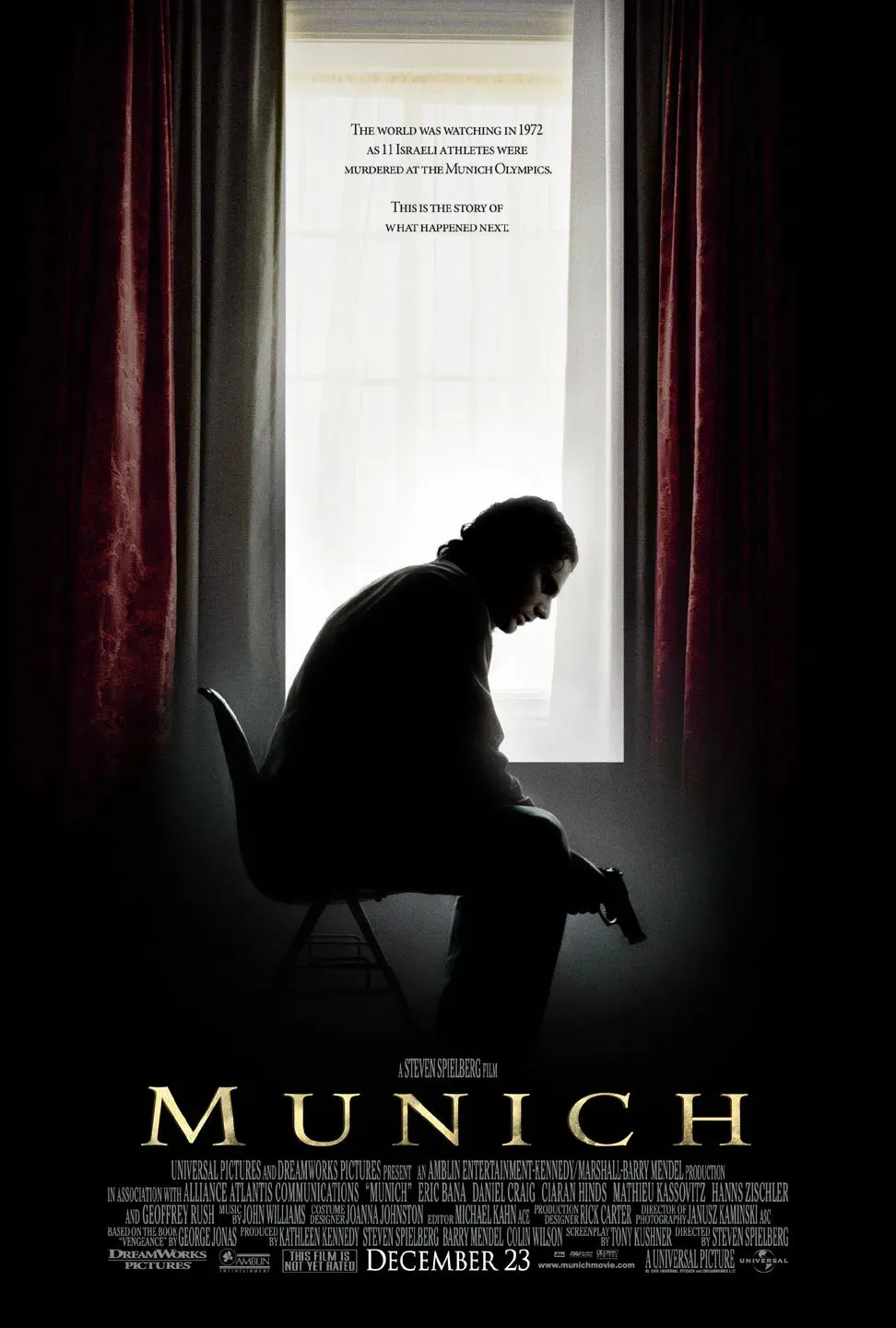Munich (2005)

Munich tells the aftermath of the 1972 Munich Olympic massacre, following a small, covert Mossad team chosen to hunt down and eliminate those believed responsible for the attack. Led by Avner, a quiet, principled agent whose life at home is waiting—his wife is pregnant—the five-man squad moves across Europe and the Middle East, relying on informants, forged identities and stealth to carry out targeted killings. What begins as a state-sanctioned mission of revenge quickly becomes a spiral of reprisals, operational setbacks and blurred loyalties. Watching the film, you’ll experience a tense, methodical thriller that balances action with intimate psychological drama. There are suspenseful assassination set pieces and clandestine tradecraft, but the movie spends as much time on the aftereffects: the sleepless nights, moral doubts, and growing paranoia of operatives who must constantly watch their backs. The tone is somber and unglamorous—violence is shown as costly and corrosive rather than heroic—and the narrative raises uncomfortable questions about justice, identity and the human price of revenge. Visually and emotionally, Munich is restrained and atmospheric: period detail and moody pacing emphasize realism, and the story’s ambiguity lingers after the credits. It’s a thought-provoking, often uneasy viewing experience for anyone interested in political thrillers grounded in real events and in dramas that interrogate the ethics of state violence as much as the logistics of espionage.
Actors: Eric Bana, Daniel Craig, Marie-Josée Croze
Director: Steven Spielberg
Runtime: 164 min
Genres: Action, Drama, History
![]() 7.1
/10
7.1
/10
74
/100
7.5
/10
![]() 7.3
/10
7.3
/10